The USC Institute of Armenian Studies advances research and collaboration that examines the social, cultural, educational, and political challenges facing Armenia, Karabakh, and the Armenian communities in the Diaspora.
To study and re-define the complex issues that make up the diverse contemporary Armenian experience, the Institute conducts research, advances public service, and generates networks among global Armenian communities.
The Institute of Armenian Studies is committed to supporting and delivering content, accessible to both scholars and the community at large, through programs that address:
- Security, development, and democratization in Armenia and Karabakh
- Protection and documentation of human life and heritage
- Armenian identity, values, and contribution globally
- Partnerships among the Diaspora, Armenia, and Karabakh
- Changes in Turkey, Russia, Iran, Georgia, the Middle East, and impact on Armenians
- Armenian language as identity capital
- Creation of sustainable and accessible community archives
The Institute benefits from the thought partnership and support of its Councils, including the Academic Council, the Leadership Council, and the National Honorary Council.
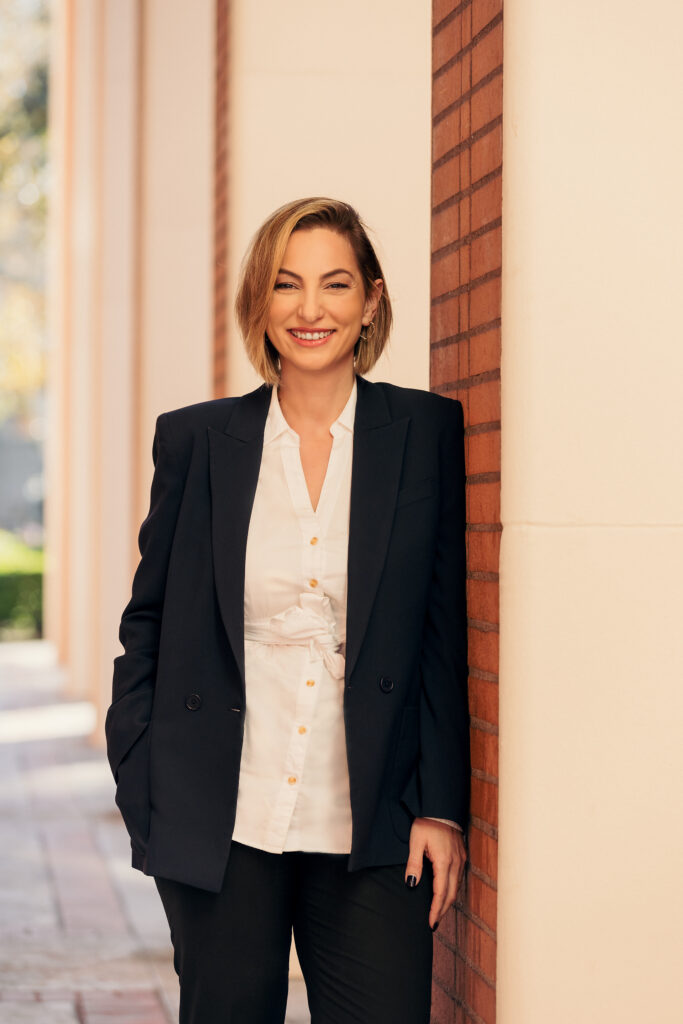
Dr. Shushan Karapetian
Director
Dr. Karapetian sets the Institute’s vision and leads the research and scholarship initiatives, deepening integration with entities both on and off campus and expanding the scope of academic programming. She researches, teaches, and writes about the Armenian experience, particularly focusing on competing ideologies at the intersection of language and the construction of transnational identity. Dr. Karapetian received a PhD in Near Eastern Languages and Cultures from UCLA in 2014, where she taught Armenian Studies courses for over ten years. Her dissertation, “‘How Do I Teach My Kids My Broken Armenian?’: A Study of Eastern Armenian Heritage Language Speakers in Los Angeles,” received the Society for Armenian Studies Distinguished Dissertation Award in 2015. In 2018, she was the recipient of the Russ Campbell Young Scholar Award in recognition of outstanding scholarship in heritage language research. She is the host of the podcast Language Therapy with Dr. K and the IG/YouTube Word of the Day
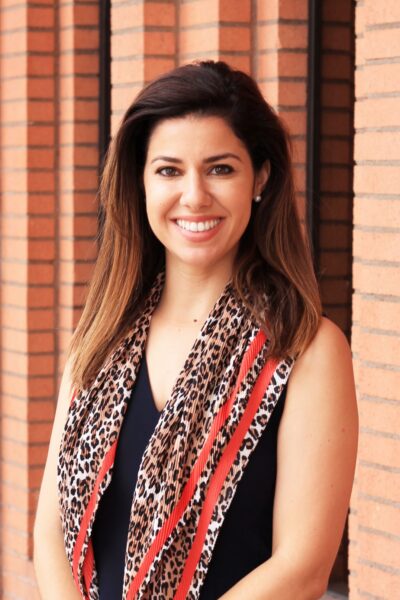
Silva Sevlian
Associate Director
Silva Sevlian works in the Office of the Director overseeing the 2023 transition, Institute priorities, diaspora-related initiatives as well as university relations. Prior to joining the team at the Institute, she worked as a researcher at the USC Center on Public Diplomacy and later, on the executive team at USC Shoah Foundation. Silva has an undergraduate degree in Print Journalism and a Master’s in Public Diplomacy, both from the USC Annenberg School for Communication and Journalism. She is an adjunct writing instructor at the American University of Armenia.
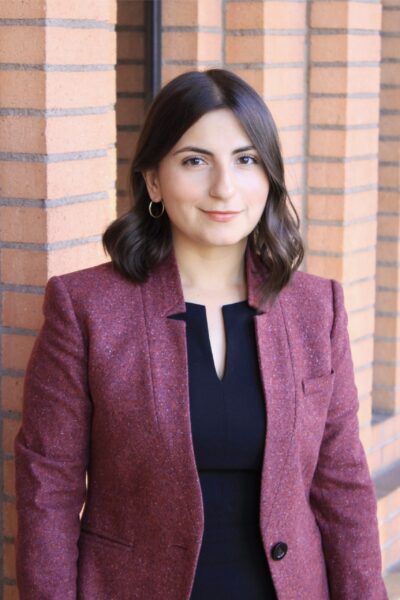
Margarita Baghdasaryan
Associate Director
Margarita oversees the Institute’s global communication efforts and manages the Institute’s USC Tacori Center in Armenia. She holds a Master of Science in Political Sociology from the London School of Economics and Political Science and a Bachelor of Arts in Political Science and Middle Eastern Studies from UCLA. In addition to her multidisciplinary academic background, Margarita brings years of work experience in government, advocacy, and nonprofit management.
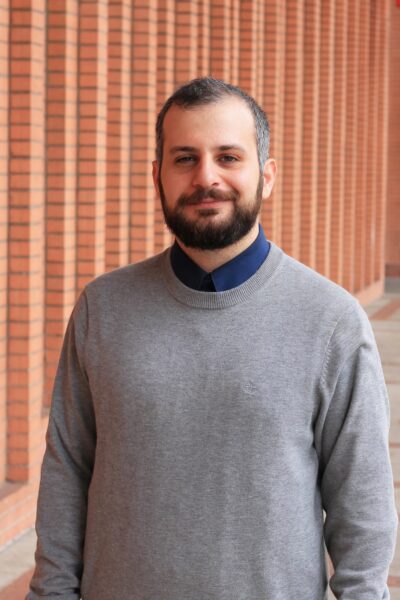
Gegham Mughnetsyan
Chitjian Researcher Archivist
Gegham Mughnetsyan works with Armenian diaspora archives and leads the Institute’s Displaced Persons Oral History and Documentation Project. Gegham also produces content for the Institute’s social media platforms and works on building the Institute’s digital collection. He received his MA from American University, in Washington DC, where he studied International Affairs and his BA from UC Berkeley in Peace and Conflict studies where his focus was on Nagorno Karabakh.
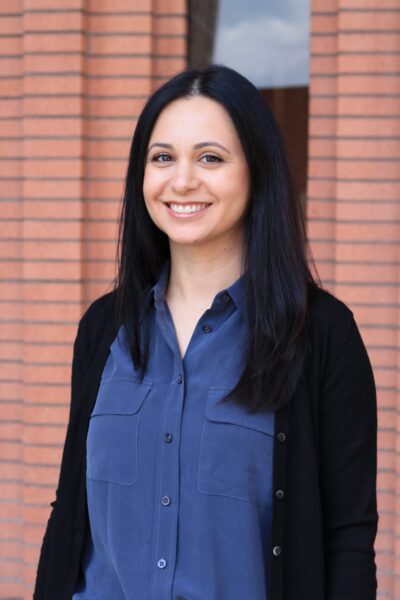
Dr. Lilit Keshishyan
Project Director
Dr. Keshishyan directs the Institute’s “California History through Armenian Experiences” oral history project and also works on various aspects of the Digital Diaspora Initiative. She is a part-time lecturer in The Writing Program at USC. Dr. Keshishyan holds a PhD in Comparative Literature from UCLA, where she taught comparative literature and writing courses for over 10 years. Her academic work has explored the intricacies and challenges posed by issues of identity, language, and place in the literature of the Armenian diaspora.
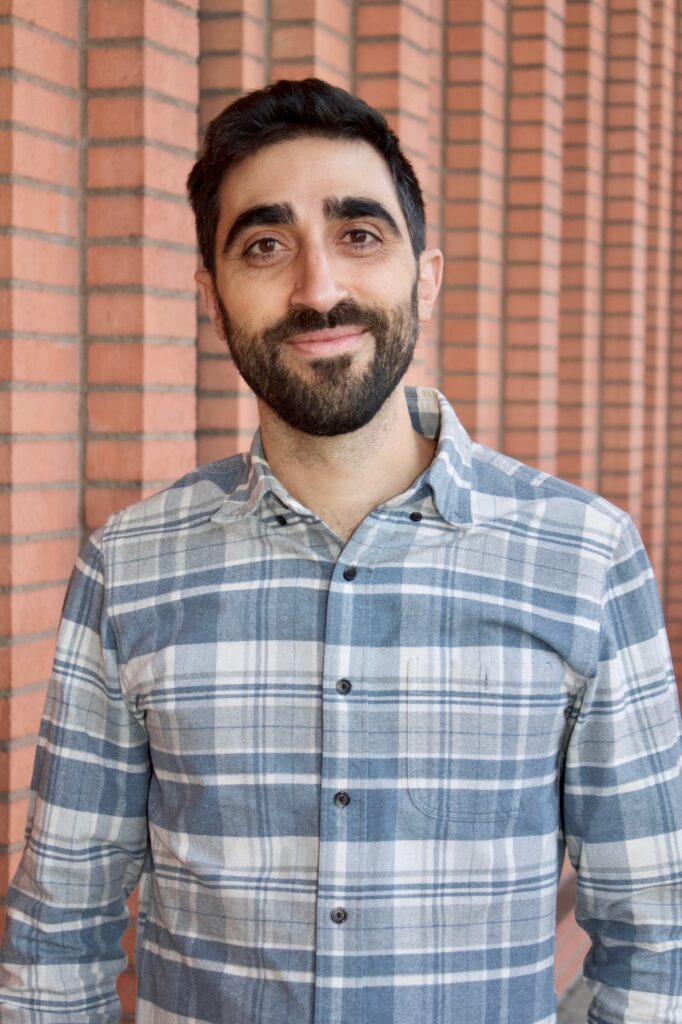
Manuk Avedikyan
Project Manager
Manuk Avedikyan works on the “California History through Armenian Experiences” oral history project and does outreach for MyArmenianStory. He previously managed the Armenian Genocide survivor oral history collections at the USC Shoah Foundation for over seven years. Manuk holds an MA in Political Science and International Affairs from the American University of Armenia in Yerevan, focusing on non-Muslim minority issues and reforms in modern-day Turkey. He has a BA in History from California State University of Northridge.
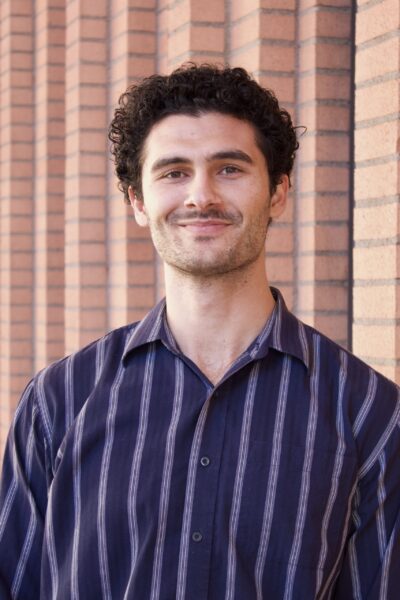
Brandon Balayan
Associate Creative Manager
Brandon Balayan creates videos for My Armenian Story and “California History through Armenian Experiences” oral history projects. He assists website development, and develops creative concepts that aim to deliver the Institute’s research and projects to a wider audience. Prior to working with the Institute, Brandon spent a year in Armenia, volunteering for various organizations with the help of Birthright Armenia. He worked for The Armenian Mirror-Spectator and Kooyrigs NGO as a reporter and media assistant, respectively. He is currently a senior at California State University, Northridge pursuing a Bachelor of Arts degree in Journalism.
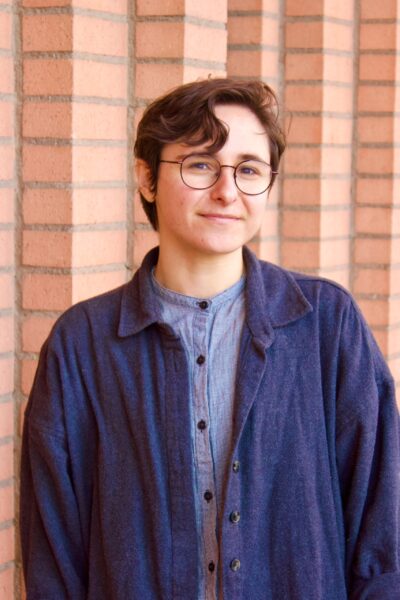
Aza Babayan
Project Archivist
Aza Babayan is the archivist for “California History through the Armenian Experience”, making the Institute’s oral histories accessible as part of a grant project funded by the California State Library. They are a liaison between the Institute and the USC Digital Library and responsible for metadata cross walking, creating documentation on oral history methodology, and ensuring the collection’s publication to the USC Digital Library and its aggregate sites. Babayan has an MLIS from University of California, Los Angeles and also works as an archivist at the June L. Mazer Lesbian Archives.
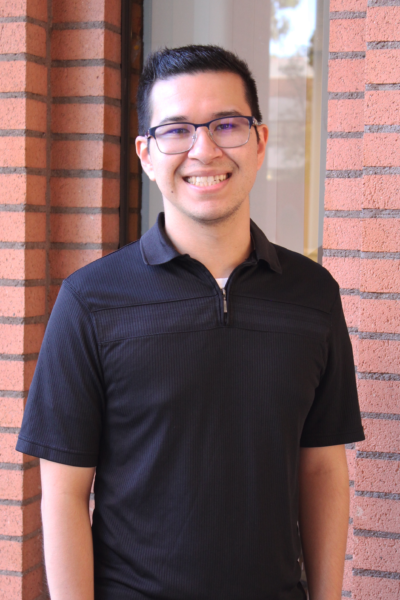
Adam Bantad
Administrative and Budget Specialist
Adam oversees the Institute’s administrative and budget affairs. He has spent his career working with research teams, helping build capacity by managing grant budgets and projects. Prior to joining the staff at the Institute, he worked at the UCLA Department of Electrical and Computer Engineering, where he oversaw the administrative and purchasing work of the department chair. In 2019, he earned a Bachelor of Arts in Political Science with an emphasis in global politics at California State University, Long Beach.
Student Workers
Each year the Institute employs up to a dozen USC students who support the Institute’s programs by transcribing interviews and digitizing documentation for various oral history projects; writing articles for community newspapers; expanding the Institute’s network of global scholars; conducting research for Institute podcasts and programs; cataloging and maintaining the Institute’s digital archives; producing podcast episodes and editing video/audio content for media, and more.
FINAL REPORT
Dive deep into our 2023 activities by reading our 2023 Final Report!








